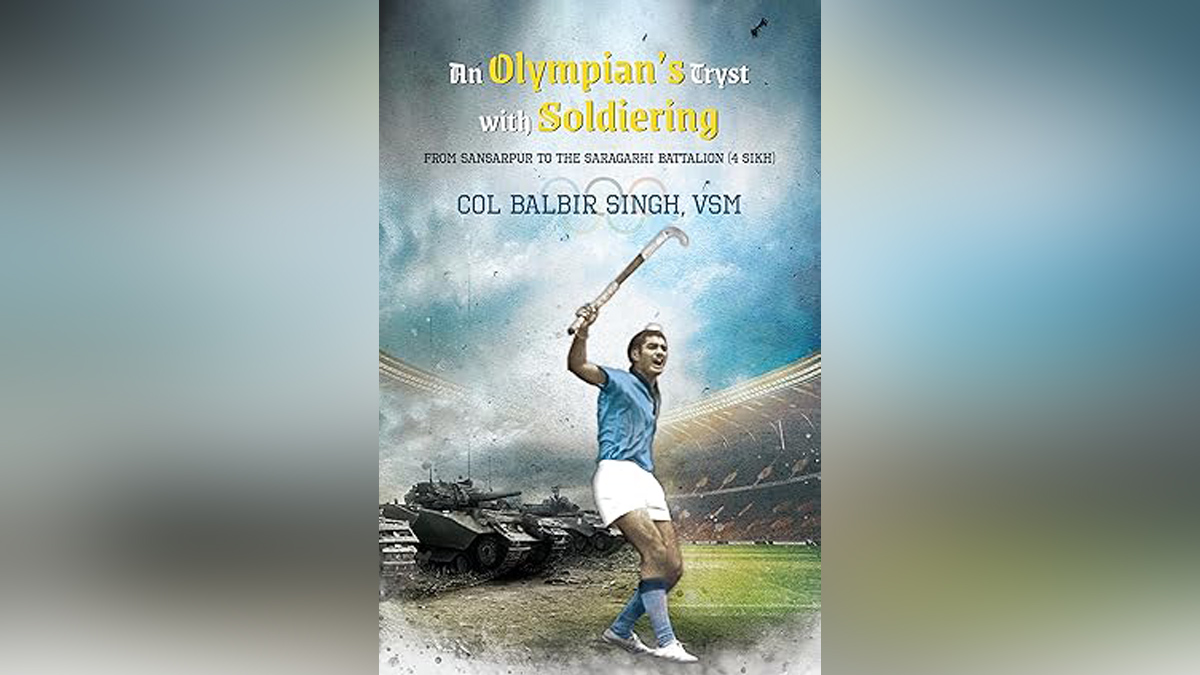In a cricket-crazy nation, the love for hockey runs deep among its followers. During the 2020 Tokyo Olympics, the Indian men's hockey team won a bronze medal, ending its four-decade-long medal drought. They carried this momentum into the Paris Olympics, winning another bronze, igniting hope for the gold during the next games.
Remarkably, ten players from the winning team in Paris hailed from Punjab, four of whom were from Jalandhar, a city known for producing hockey talent.
Sansarpur, a village in Jalandhar, is particularly renowned as a nursery of hockey, having produced 14 Olympians and hundreds of national players. The enduring love for hockey in this region is deeply embedded in its culture.
One of Sansarpur's illustrious sons, Colonel Balbir Singh, has documented his journey as a hockey player and army officer in his memoir.
Titled ‘An Olympian's tryst with Soldiering: From Sansarpur to Saragarhi Battalion (4 SIKH)’, the memoir, published by the Browser, chronicles the life of a dedicated regimental soldier and an internationally acclaimed sportsperson. Balbir Singh belongs to a family of army men and even his son, Sarfaraz Singh, is also in the army.
The memoir is filled with engaging anecdotes, some of which offer vivid descriptions of key matches during hockey's golden era. Balbir Singh’s candid recollections take readers back to a time when the world was opening up. In one amusing anecdote, he recalls the fascination Spanish women had with Sikh players, whom they had never encountered before. Despite the language barrier, some of the players were lucky enough to make connections, he humorously notes.
The author also draws a connection between Sansarpur and the Saragarhi Battalion, which was raised in Jalandhar. The battalion, later known as 4 SIKH, was where Balbir Singh served, having been recruited for his hockey skills.
The battle of Saragarhi, in 1897, is legendary. The piquet was defended by 22 soldiers under the command of Havildar Ishar Singh. Twenty-one of the soldiers were Jat Sikhs, and they held off a much larger Afghan force, taking down 450 enemies before being killed. For their bravery, each of the 21 soldiers was awarded the Indian Order of Merit, the highest gallantry award for an Indian soldier in the British Army. Such an award, given to so many in one day for a single battle, was unprecedented.
As for Sansarpur's hockey legacy, Balbir Singh attributes it to the village's unique socio-cultural, economic, and educational environment, as well as its proximity to the Jalandhar Cantonment. He credits the British for establishing infrastructure and cultivating a love for hockey.
“The villagers, always short of recreational avenues, took to the game like ducks to water,” he writes. The army cantonment, with its sports grounds and easy access to the Parade Ground, provided a rare outlet for their energies. The availability of a hockey ground further nurtured the sport in the area.
The village’s hockey legacy began in 1926 when Naik Thakur Singh Kular from Sansarpur was part of the first Indian Army team to visit New Zealand. This opened the floodgates for hockey talent from the village.
Balbir Singh’s memoir does not shy away from sharing some lesser-known stories. He recounts how Indian players shielded a Pakistani player on the field after his shorts tore during a match against Poland in Pakistan. In another instance, he describes how three senior Indian team managers were locked out of their camp and spent the night in the cold.
He also recalls the heartbreak of the 1968 Mexico Olympics, where the Indian men’s hockey team failed to reach the Olympic final for the first time since 1928. Although India eventually won the bronze medal, the semi-final loss cast a pall over Sansarpur.
“The famous five of the squad—Colonel Balbir, Balbir (Punjab Police), Jagjit, Ajitpal, and Tarsem—who hailed from the same village and brought back bronze medals, were afraid to set foot in the village,” he writes. The disappointment was so profound that they feared the backlash from the hockey-loving villagers.
“When we finally did go home, even our parents were furious. They asked if this was what we had learned after all those years of playing hockey.” Singh laments the indifference that has since grown, with the village no longer reacting as strongly to the national team's failures.
In another notable anecdote, Singh recalls how then Prime Minister Indira Gandhi remarked on the team's loss to Australia, attributing it to indiscipline.
Through these pages, the spirit of hockey truly comes alive. Balbir Singh’s memoir is a valuable record for future generations and researchers. More sportspeople should document their experiences to preserve history and inspire future athletes.



